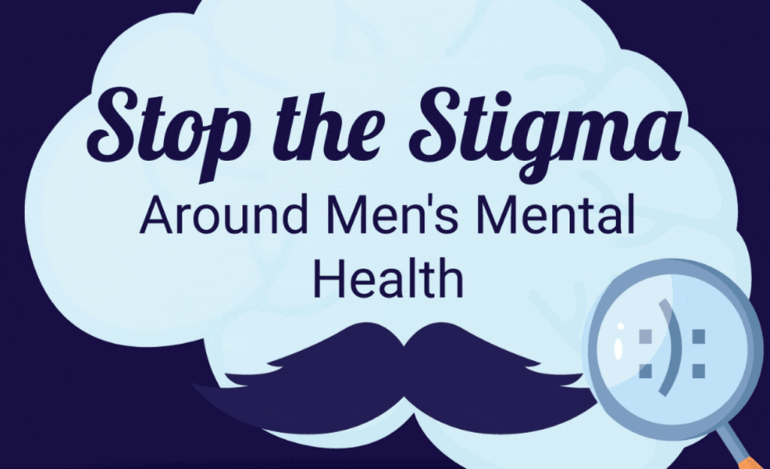The topic of mental health often centers around women. However, men’s mental health is a highly pressing issue.
One of the biggest reasons men’s mental health often goes undiscussed is the stigma surrounding mental illness such as depression and anxiety. This large stigmatization against mental health for men can have severe, life-long consequences.
While men’s mental health is often overlooked, it remains a significant concern.
Six million men are affected by depression in the United States every year.
Men are four times more likely to commit suicide than women.
Men died by suicide at a rate of 3.4% higher than women in 2017.
Men are two to three times more likely to misuse drugs than women.
Annually, 62,000 men die from alcohol-related causes compared to 26,000 women.
Despite this, men are still far less likely to seek help for mental illness.
Toxic masculinity plays a prominent role in stigmatizing men’s mental health.
Toxic masculinity refers to the gendered social norms involving traditional cultural views of “what a man should look and act like.”
Typically, men are taught to hold in their emotions, not be vulnerable, emotional, or weak.
This burden of having to uphold this structure of masculinity tends to discourage men from seeking help from mental illnesses.
Refusal to seek treatment for mental health issues can lead to unhealthy coping mechanisms like substance abuse, alcoholism, lashing out at others, resorting to violence or anger, and self-harm.
Reducing the stigma begins with breaking society’s shambles, unlearning toxic masculinity, and relearning that anyone can ask for help.
If you or someone you know are struggling with mental health issues, we encourage you to call SAMHSA’s National Helpline 1-800-662-HELP (4357)


